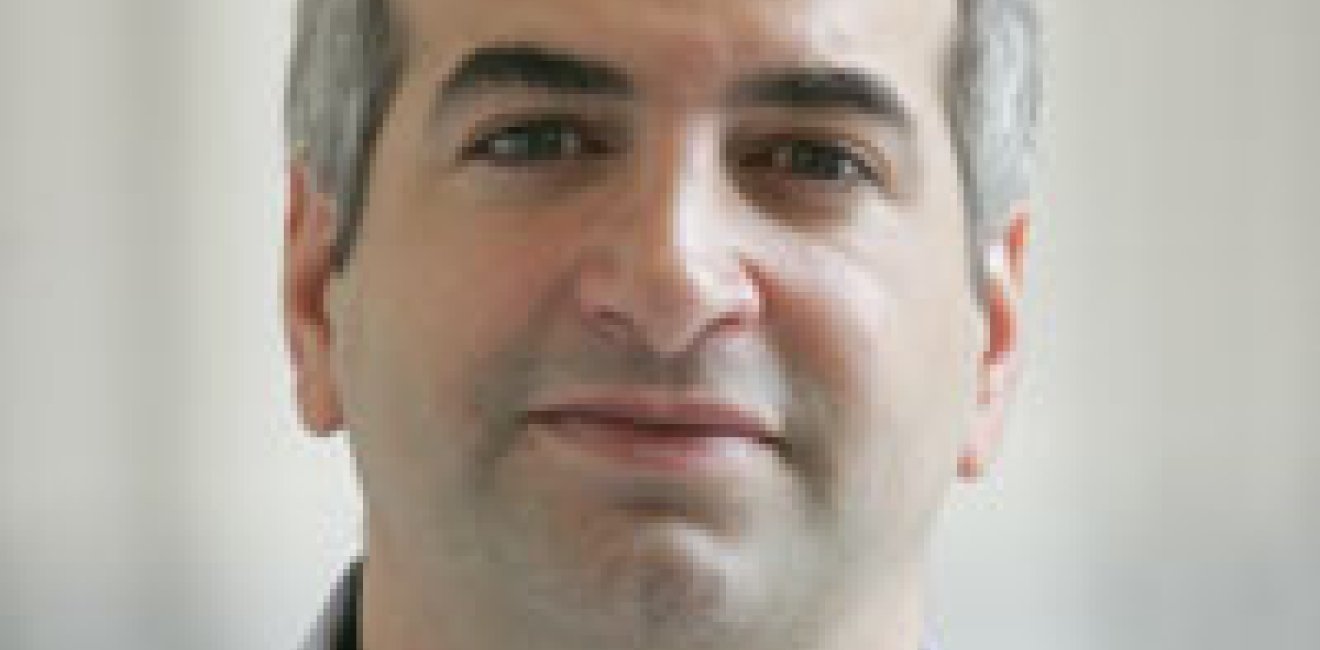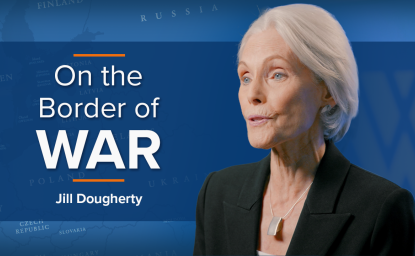Foreign Correspondent Reflects on Reporting in Iraq
Pulitzer Prize-winning journalist Anthony Shadid reflects on his experiences as a foreign correspondent in Iraq this past year.
Pulitzer Prize-winning journalist Anthony Shadid reflects on his experiences as a foreign correspondent in Iraq this past year.

Journalist Anthony Shadid spent much of last year covering Iraq for The Washington Post. His human interest stories during the war and after the fall of Baghdad won him a Pulitzer Prize for international reporting. An Islamic affairs expert, he has reported on the Middle East for 10 years, including four years in Cairo, before going to Iraq.
"There is a certain freedom to it," Shadid said of being a foreign correspondent. "It's the freedom to go to a foreign place, try to understand the situation, and tell the story with a critical, sympathetic eye."
One such story, among the series of 10 that earned him the Pulitzer, involved a man forced to kill his son whom villagers accused of being a U.S. informer. Refusing would have provoked the villagers to kill the entire family in the name of tribal justice. Unable to fire the final shots, the victim's brother finished the job. "It wasn't an easy thing to kill him," the brother Salah told Shadid. Soon after the story appeared, the U.S. military began searching for the father, who remains in hiding, protected by the same villagers who forced him to kill his son.
"There are countless narratives in Iraq," said Shadid. "It's a panorama of anger, emotion, and contradiction."
Gaining access to such stories is difficult, requiring a relentless, often dangerous, pursuit of leads and contacts. Even Shadid, an Arab-American of Lebanese descent who speaks fluent Arabic, had difficulty getting Iraqis to trust and confide in him. He said cafes, barbershops, and pharmacies rank among the best places to search for stories.
Wartime reporting creates other challenges. "It's easy to show anger and violence," said Shadid, "but hard to show compassion and the grace of the human experience."
Yet another challenge in covering Iraq is helping Americans relate to such stories. Shadid once reported on an Iraqi woman in Karima who had eight children, describing her anxiety over sending her eldest son to Baghdad to fight. He received an outpouring of emotion from American readers who connected with the mother's plight.
Reporting in Iraq is bleak but there are hopeful outcomes as well. Shadid had published a story about the U.S. mistakenly leveling an Iraqi man's house and that man's efforts to obtain monetary compensation from the U.S. government. After reading that story, an American private citizen donated thousands of dollars to help the man.
Over the years, reporting on Islamic affairs has shifted dramatically. In his earlier days of Middle East reporting, Shadid focused on political Islam and its potential to democratize. While he still sees a dynamic for reform at work, he worries that the growing radicalization of the region may overshadow it and command most of our attention.
Shadid, currently a public policy scholar at the Wilson Center, is working on a book to be titled, Night Draws Near: An Odyssey through Baghdad in War and Its Aftermath. The book will be a narrative of Baghdad, incorporating his experiences with families he spent time with during his year there.
"The best journalism celebrates nuance," Shadid said. "War obliterates nuance. It's all violence, blazes, smoke. Reporters must go into the human drama, with war as the backdrop. Some of the best journalism has emotional investment."



